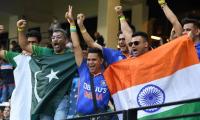PESHAWAR: Up to 18 per cent of women in Pakistan aged 20-24 reported being married before the age of 18 as compared to 4.7 per cent men in the same age bracket, said the data released by Pakistan Demographic Health Survey (PDHS) 2017-18.
Citing the document, women rights activists said on Thursday the data showed that child marriages stood at 28 per cent in settled and 35 per cent in the tribal districts of KP.
They pointed out that the legal age for marriage for girls in Pakistan is 16 years, under the Child Marriage Restraint Act (CMRA) 1929, except for the province of Sindh where it has been increased to 18 years for both girls and boys.
The Sustainable Development Goals indicator, they explained, for child marriage measures it at two levels i.e. 15 years and 18 years for the ever-married women in the age bracket of 20-24 years.
The survey said in Pakistan 3.3 per cent girls get married under the age of 15 years and 18.3 percent under the age of 18 years.
“Despite having the second-lowest ranking among the SAARC countries, it’s a substantial percentage being the fifth most populous country of the world” said Qamar Naseem, Provincial Coordinator, Alliance to End Early Child and Forced Marriages and Co-Chair National Action Coordination Group and inter-Governmental body.
“Child marriage may not be a norm in Pakistan, yet a significant number of the girls are affected by it. The legal discrepancy of marriageable age to be 16 years is a major contribution to child marriages in Pakistan,” he believed.
The rights activist said the most recognized drivers of child marriage in KP are poverty, education and employment, socio-cultural narratives, attitudes and practices, inadequate legal measures to enforce a halt to the harmful societal practice.
He argued that legislation is a critical tool for controlling deviant behaviours and providing protection in sensitive issues like child marriage, but it has yet to be adequately utilised by the government. “Education protects girls against child marriage and improves workforce opportunities and should be considered with a serious approach,” said Sana Ahmad, Coordinator, Child Rights Movement (CRM) KP.
She added that education and associated opportunities for labour force participation are validated as essential to socio-economic empowerment of girls and women in KP and have the potential to improve gender equity and equality.
The girl education activist said the survey data reveals that the issue of child marriage is multi-layered and impacts the individual, family, and society at multiple levels.
It is a part of both gender and child rights debates, but demands an integrated narrative anchored in a rights-based agenda that is multi-sectoral and addresses all stakeholders alike, she added.
The rights activists said child marriage is a violation of rights guaranteed under the Constitution, which mandates the state to protect all its citizens, especially women and children.
Additionally, they added, Pakistan had ratified the Convention on the Rights of the Child (CRC) 1990 which commits Pakistan to take legislative, administrative, social, and educational measures to protect and fulfil the rights of all children which includes eliminating child marriage.







